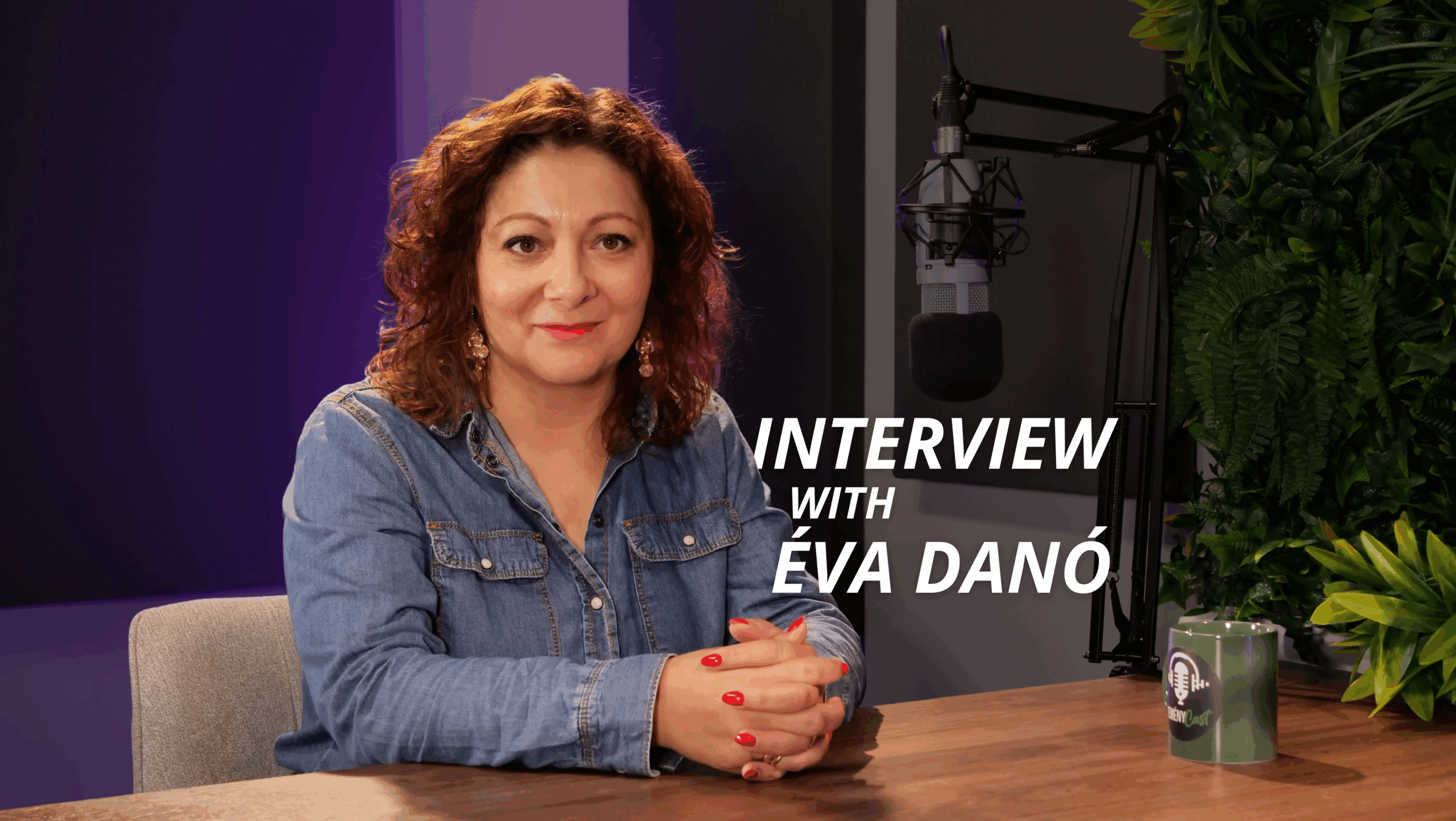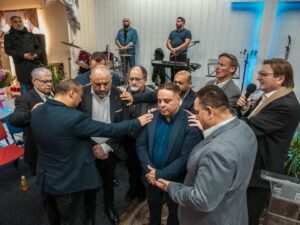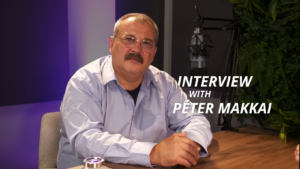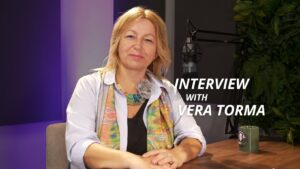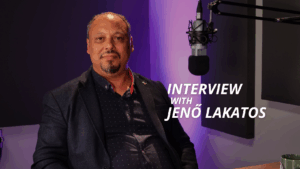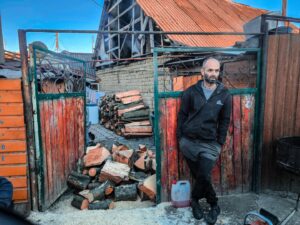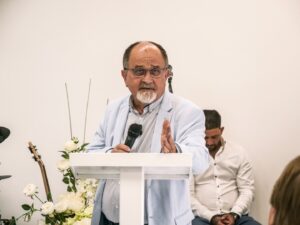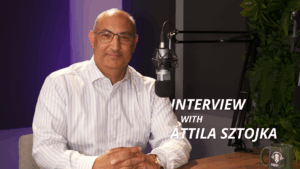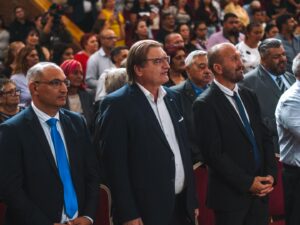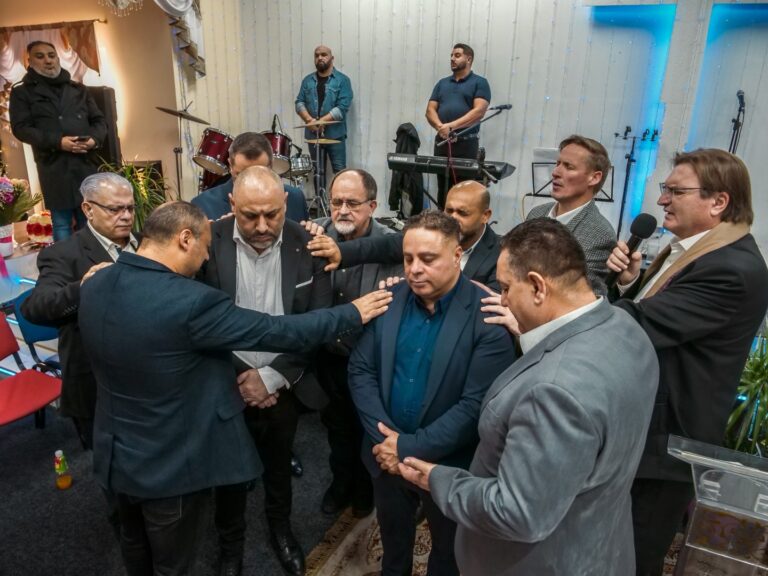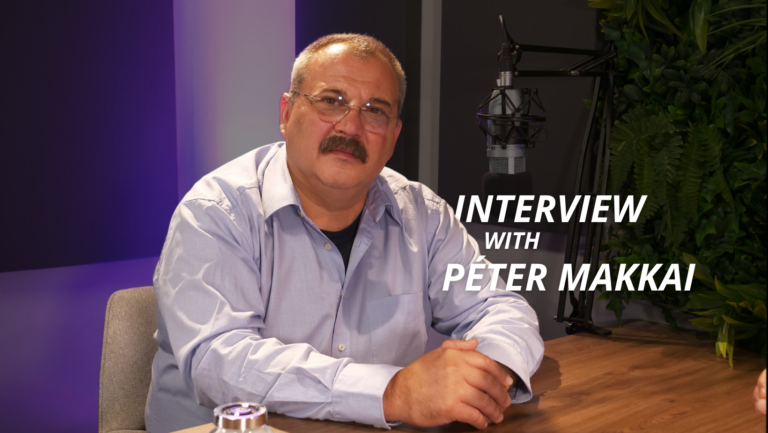Éva Danó, Regional Manager at the Várva Várt Foundation, grew up in deep poverty as a Roma woman, one of six siblings born to illiterate parents. Exclusion, prejudice, and hardship were everyday realities for her, yet through faith and perseverance, she built a new life. Today, she offers hope to others as a social worker and crisis counselor.
Let’s begin by helping the audience get to know you. How do you remember your childhood, and where are you from?
—I grew up in a Roma family with six children in Hatvan, Hungary. My mother was illiterate, and my father worked as a laborer. We lived in poor, humble conditions, but those experiences made me resilient and shaped the person I am today.
How did you experience that family environment as a child? What was it like growing up?
—It was difficult. My parents’ marriage was full of tension, and alongside poverty, violence was a part of our lives. My father abused my mother, and she often took her frustration out on us. Still, I never blamed them—they had their own wounds. Even as a child, I tried to find the good in life. Thankfully, many kind people crossed my path and helped me see the world differently.
When did you first feel you wanted a different path than the one you saw at home?
—Very early. There was a Reformed church next to us, and the pastor’s wife, Nóri, welcomed me. She taught me a song: “The blood of Jesus cleanses.” I didn’t understand it then, but it moved me. Their peaceful home stood in contrast to the chaos I lived in. I decided I wouldn’t drink or smoke, and I would work hard. My parents supported my decision, and I’m grateful for that.
Would you say faith sustained you in such a difficult environment?
—Yes. I longed for my mother’s love and often tried to win her approval. In our traditional Roma family, male authority and female diligence were the norm. I never said no—I always helped. I found love at the children’s church services. That’s where I learned that even if no one else loves me, God always does. I began praying as a child—during fights, when we had no food—and I saw those prayers answered. That connection is still deep within me. I know He never abandons me, even when others do.
That’s powerful. Many people don’t believe God can truly help.
—I see it differently. Some say, “You just needed something to hold on to,” but time reveals whether faith is real—it shows through its fruits. I didn’t choose to be Roma or to be born into poverty, but none of us choose where we’re born. What we can choose is how we live. If you’re born in a swamp, you need solid ground under your feet. For me, faith provided that. The Bible helped me stand on moral foundations. And this isn’t just a Roma issue—everyone struggles. But God’s love never pulls back.
Did you have a role model or someone you identified with?
—Yes. God was the first to walk with me. But I also loved Nóri and her family from the Reformed church. They never forced faith—they shared Bible stories through play, which made the teachings come alive. I was especially inspired by David’s courage. I was brave too—as a child, I’d step in when someone was being bullied. The Bible gave me strength and a desire to become a better person. I didn’t have many human role models. I focused more on responding differently than my parents had. I wanted to redeem myself.
Where did your strength to break out of your background come from?
—I believe you need a deep inner desire to be better. Growth is lifelong—just as we grow physically, we can grow spiritually. As a child, I had a strong will. But it took great humility to face my own flaws. It was scary—wondering if I could really change. At times, I felt lost, unsure of who I was. I thought I had to live like other Roma to be truly Roma. But my husband isn’t Roma, and among his people, I felt I had to deny my roots. That identity conflict lasted 10–15 years until I found my true self.
How did your family react to your marriage to a non-Roma man?
—My mom tried to steer me toward certain boys, but I insisted on choosing my partner. As a child, I saw Roma men as jealous like my father, and I didn’t want that. I now know that’s a stereotype—there are many exceptional Roma men—but back then, I wanted something different. Péter, my husband, pursued me persistently—even after I initially said no. He eventually won me over.
Where did you meet him?
—After eighth grade, I began working—illegally assembling clothes dryers—and we met in Aszód, where we still live. He approached me, courted me, and I introduced him to my parents early on. They noticed he wasn’t Roma and had concerns, but accepted him because they saw how different he was. He’s calm, I’m energetic, but they came to love him. My mom was initially worried, but I stood firm in saying the choice—and any hardship that came with it—was mine.
How did his family receive you?
—His mother was initially cautious. She’d had negative experiences with Roma people and made some prejudiced remarks. But Péter was unwavering in his support and didn’t let that affect us. Although things were rocky at first, we now have a close, loving relationship. I supported her during her illness and learned a lot from her.
Tell us about your education and career journey.
—I worked while studying. I completed high school and later studied social work and theology. It took courage—my family didn’t understand why I was reading so much. I didn’t want to follow in my mother’s footsteps as a cleaner. My mother-in-law encouraged me not to give up. University was daunting, but I learned how to study—reading aloud, taking notes—and I succeeded. I eventually secured a well-paying position at a multinational company. There were many struggles, but I kept going.
Did people know you were Roma?
—Often only when they heard my maiden name. Then came the comments: “Oh, you’re Roma?” That stirred feelings of inferiority in me—ones I already carried inside. It’s hard to wrestle with your past and the labels others impose. When I talk to young Roma, I always say: even if you reach university later, it’s worth it. Life is long. And we shouldn’t be angry with our parents—they did the best they could within their limitations. We must love and respect them while forging our own paths.
How did you rise to a leadership position? Did you feel you had to prove yourself more?
—I started with manual labor at a multinational company. But those who performed well were offered internal promotions. I applied, interviewed, and became a manager. I never had negative experiences at work—I was always appreciated and welcomed back when I left. I was motivated and ambitious. I also felt a strong responsibility—not to bring shame on the Roma community. We either reinforce stereotypes or break them. I always chose to be a positive example.
You have three children. What have you passed on from your Roma identity, and how do they view it?
—We talk about it openly. My older children don’t think much of it because they simply love our big, lively family. Roma family life is colorful, cheerful, and loud—they enjoy that. My youngest showed musical talent early on—he’d react to music even as a baby. So we exposed him to quality Roma music, the kind that uplifts. We also traced our family history together, and he loved that. My kids know the names of their great-grandparents’ siblings. They appreciate the sacrifices I made so their life could feel normal. It’s important they understand how big a leap that was.
You have six siblings. Have you been able to help them? How do you see their lives?
—I’ve always tried to support them. I took them to the community I was part of and tried to lead by example. But everyone copes differently. Letting go of past trauma and facing an uncertain future isn’t easy. Many people stick with familiar pain rather than risk change. My siblings are very hardworking, which is a huge achievement. But not all of them could—or can—follow the same path I took. It’s essential to unpack what we carry from the past and what we must leave behind. Faith and self-forgiveness are key. Many people blame themselves, and that hinders growth. This isn’t just a Roma issue—it’s a human one. We must believe that change is possible, and that God’s forgiveness offers us a new beginning.
What is the Várva Várt Foundation, and what is your role?
—The Várva Várt Foundation supports pregnant women in crisis who need help due to life difficulties. Our main goal is for every child to be awaited and raised in their own family. We also work on prevention and sexual health education—major areas of need in Hungary. As a regional manager, I lead teams across multiple counties. It’s diverse, meaningful work.
Do you often work with Roma families?
—Yes, though not exclusively. What matters most is that at Várva Várt, Roma background is never an issue. I love helping, and I’ve found that many helpers were once helped themselves. My previous work in child protection was emotionally heavy. I learned that to help others, you must avoid burnout. At Várva Várt, we have the support structures in place to offer meaningful assistance. We never send anyone away without a kind word. Self-awareness also includes knowing your limits—so you don’t repeat the same traps. That’s how I can offer sustainable help.
Your mission touches many lives. Do you think society is doing enough to connect Roma and non-Roma communities?
—There are still many Roma living in deep poverty and segregated areas, like Lyukóvölgy—it’s heartbreaking. Yet people love Roma music, like Parno Graszt or the 100-Member Gypsy Orchestra. That joy is something we should celebrate. We also need to stop viewing disadvantage as just an external factor. People born into poverty need immense strength to rise above it. A child who goes to school hungry can’t be expected to focus—and this is true whether they’re Roma or not. That’s why social acceptance is so vital. Even feeling a desire to help is already meaningful. We must also recognize the internal struggle around Roma identity. If someone is judged solely by their background, before they even act, that’s wrong. That mindset needs to change.



